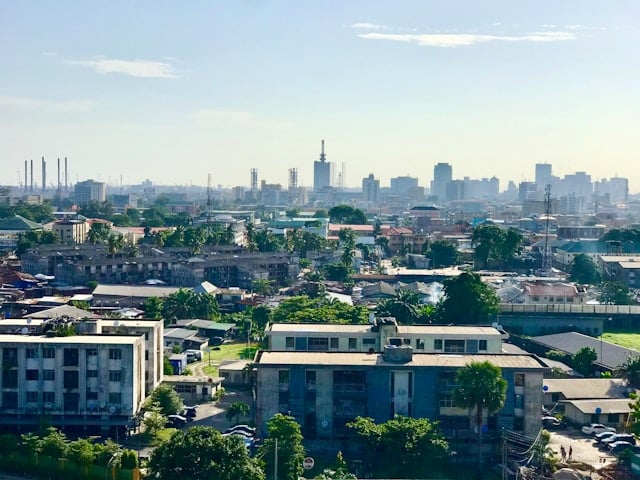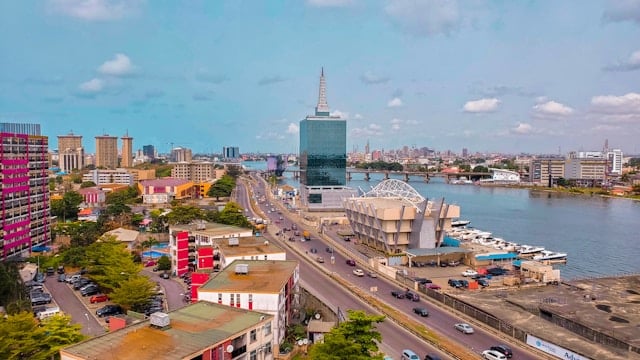The United Kingdom’s Foreign, Commonwealth, and Development Office (FCDO) has recently issued a travel advisory urging British citizens to exercise extreme caution while in Nigeria. This guidance isn’t just routine; it reflects a sharp increase in security threats across multiple regions of the country. From violent crime and kidnappings to terrorism and intercommunal conflicts, the risks are escalating in a way that cannot be ignored.
This latest advisory, published on the official GOV.UK website and reported by SaharaReporters, is part of the UK government’s ongoing effort to protect its citizens abroad. It emphasises reviewing personal safety protocols, preparing contingency plans, and being proactive about travel safety. In essence, the FCDO is making it clear: when visiting Nigeria, vigilance is not optional; it’s essential.
At its core, a travel advisory isn’t about fear-mongering; it’s about informed decision-making. British nationals are encouraged to assess risks, limit unnecessary movement, and take practical steps to protect themselves. This guidance reflects not only rising insecurity but also the FCDO’s broader responsibility to ensure that citizens abroad have actionable travel safety advice they can rely on.
Table of Contents
UK Issues Travel Advisory for Nigeria: Areas Most Affected by Security Threats
The FCDO specifically advises against all travel to six northern states: Borno, Yobe, Adamawa, Gombe, Katsina, and Zamfara. The danger in these regions stems primarily from terrorist organisations like Boko Haram and the Islamic State West Africa Province (ISWAP). These groups target transportation hubs, religious sites, and public gatherings, making ordinary travel extraordinarily risky.
But the advisory goes further than the north. Other states; including Bauchi, Kaduna, Kano, Kebbi, Jigawa, Sokoto, Niger, Kogi, Plateau, and Taraba, as well as the outer suburbs of Nigeria’s capital, Abuja, are also flagged for caution. Violent crimes, armed robberies, and kidnappings are on the rise, reaching areas once considered relatively safe. Travellers are urged to restrict movements and prioritise essential travel only.
The FCDO also highlights the danger posed by protests and demonstrations in Abuja and other cities. While these events may start peacefully, tensions can escalate quickly. British nationals are advised to monitor local news closely, avoid crowds, and follow instructions from authorities.

Understanding the North-East: Insurgency Risks and Military Operations
In the North-East, particularly Borno, Adamawa, and Yobe, the situation is volatile despite ongoing military campaigns. The Nigerian armed forces are actively engaging insurgent groups, but these operations carry inherent risks, including retaliatory attacks. Cities like Maiduguri, while vital to regional governance, could become difficult to navigate safely in the event of escalating conflict.
The travel advisory emphasises that being caught in such zones could be dangerous not only because of direct attacks but also due to possible roadblocks or security clampdowns. In essence, British nationals must stay alert and flexible, prepared to adjust travel plans at a moment’s notice.
Southeast and Niger Delta: Militant Activity Creates Hazards
Security challenges aren’t confined to the North-East. The southeast and Niger Delta regions also demand vigilance. Militant groups in Delta, Bayelsa, Rivers, Akwa Ibom, and Cross River states frequently target oil and gas infrastructure. Kidnappings, armed robberies, and sabotage are common occurrences, posing tangible risks to both residents and visitors.
In the southeast, groups such as the Indigenous People of Biafra (IPOB) engage in violent clashes with security forces. Although foreign nationals are rarely targeted directly, the potential for getting caught in the crossfire is real. This ongoing volatility underscores the necessity of following international travel advisories and planning travel routes carefully.
Crime and Urban Challenges in Southwest Nigeria
Even in the southwest, including major urban hubs like Lagos, crime levels remain high. Armed robbery, carjacking, mugging, and kidnappings are frequent, particularly at night and in densely populated areas. Travellers are advised to avoid unnecessary movement after dark and remain alert at all times.
While large-scale terrorist attacks are less common here, ISWAP claimed two attacks in 2022, showing that no region is entirely immune. In this context, the UK’s international travel guidance emphasises caution, preparation, and awareness as key tools for personal safety.
Practical Travel Advisory for Nigeria
Understanding the risks is one thing; taking action is another. Following the FCDO’s travel safety advice means:
- Limiting travel to essential trips only in high-risk areas.
- Avoiding large gatherings, protests, and demonstrations.
- Use trusted transportation options and avoid unlit or isolated routes.
- Staying in secure accommodations and keeping emergency contacts accessible.
- Registering with the British High Commission for updates and guidance.
These steps may seem straightforward, but in high-risk environments, small precautions can make a life-saving difference.
Read Also: Starmer Strengthens India-UK Trade Ties: No Visa Changes
Why Travel Advisory Guidance Is Essential
A travel advisory isn’t just a warning; it’s a tool for planning and risk mitigation. Nigeria remains a country of immense economic importance and cultural richness, but safety conditions can change rapidly. By adhering to international travel restrictions and monitoring developments, travellers can make informed decisions that protect both their well-being and their ability to navigate the country effectively.
Travel advisories also highlight broader considerations: the need for insurance coverage, communication plans, and contingency strategies. British nationals, and indeed all travellers, benefit from understanding both the macro risks (terrorism, militancy, political unrest) and the micro risks (petty crime, road hazards) that can impact daily life.

Navigating Nigeria’s Travel Advisory in an Uncertain Environment
While it may feel daunting, travelling to Nigeria is not impossible with careful planning. For British nationals and other international travellers, embracing the FCDO’s international travel guidance means:
- Prioritising Regions of Relative Safety for Travel
When planning a trip to Nigeria, following a travel advisory is essential to safeguard yourself from potential risks. One of the first steps is to identify and prioritise regions that are relatively safe for travel. While the country offers vibrant cities, cultural landmarks, and economic hubs, certain areas remain prone to violence, insurgency, and criminal activity. By focusing on destinations with lower risk levels, you reduce exposure to incidents that could threaten your safety. Checking the latest updates on international travel advisories can give you a clear picture of which regions are considered safer, allowing you to make informed decisions before setting foot in the country.
- Avoiding High-Risk or Restricted Areas
A central tenet of any travel advisory is knowing which areas to avoid entirely. In Nigeria, some northern states and conflict-prone zones have been flagged due to terrorist activity, militant operations, and intercommunal violence. High-risk areas often include regions where groups like Boko Haram or ISWAP operate. Ignoring these warnings can expose travellers to unpredictable threats, including kidnappings, armed attacks, or targeted violence. By respecting international travel guidance, you minimise unnecessary risks and ensure your journey remains as safe as possible. This principle is not about instilling fear; it’s about being proactive and strategic with your travel choices.
- Preparing Contingency Plans for Emergencies
No matter how cautious you are, emergencies can occur, making contingency planning an essential component of travel safety advice. This includes having backup accommodation options, pre-arranged transportation routes, and emergency contacts readily available. Travellers should also plan evacuation routes in case a situation escalates quickly. Preparing ahead reduces panic and confusion during unexpected events. Many travel advisories recommend registering with your home embassy upon arrival so officials can assist in case of natural disasters, civil unrest, or personal emergencies. Having a well-thought-out plan ensures that even in the worst-case scenario, you can act swiftly and effectively.
- Staying in Constant Contact with Authorities and Embassies
Being connected with local authorities and your national embassy is a key piece of international travel guidance. Frequent communication provides real-time updates on evolving security conditions, road closures, protests, or potential threats in your area. The FCDO travel advisory, for example, stresses the importance of checking official sources for safety updates and adhering to their recommendations. Establishing these communication channels before travelling allows you to respond promptly if the situation deteriorates and ensures that help is available when needed.
- Flexibility: Adapting to Evolving Security Conditions
Perhaps the most important advice from any travel advisory is to remain flexible and ready to adjust your plans at a moment’s notice. Security conditions can change rapidly, whether due to protests, armed clashes, or terrorist activities. Being mentally and logistically prepared to change your itinerary, relocate to a safer area, or delay travel plans is essential for protecting yourself. Travellers who remain rigid or ignore travel safety advice are far more vulnerable to harm. Flexibility, combined with awareness and preparation, allows you to navigate Nigeria’s complex environment safely and responsibly.
By approaching travel with a mindset of preparedness rather than fear, visitors can explore Nigeria’s many opportunities while minimising risk exposure.

Stay Informed, Stay Safe with FCDO’s Travel Advisory
The FCDO’s travel advisory serves as an essential reminder that Nigeria, while undeniably economically vibrant, culturally rich, and full of opportunities, continues to face significant security challenges that cannot be ignored. For any traveller, whether visiting for business, education, or leisure, understanding the country’s security landscape is not just helpful; it is critical.
The travel advisory reflects a broad spectrum of threats, ranging from terrorism and insurgent operations to violent crime, kidnappings, and urban unrest. While these risks may seem overwhelming on paper, they are very real in day-to-day life and can affect even those who consider themselves cautious and experienced travellers. British nationals, as well as all international visitors, are therefore strongly encouraged to remain vigilant at all times, to plan their movements meticulously, and to adopt a mindset of preparedness for every eventuality.
To navigate Nigeria safely, the first step is acknowledging the scope and scale of potential risks. The northern states, particularly Borno, Yobe, Adamawa, Gombe, Katsina, and Zamfara, are areas of high concern due to the presence of terrorist groups such as Boko Haram and the Islamic State West Africa Province (ISWAP). These groups are known for targeting public gatherings, religious centres, transportation hubs, and infrastructure, making seemingly ordinary activities potentially dangerous. While not every area is directly affected, the unpredictability of attacks means travellers must maintain heightened awareness even in cities and towns considered relatively safe. The FCDO’s travel advisory highlights that the threat is not static; it is dynamic, shifting with insurgent activity and local conditions. Therefore, visitors must be proactive rather than reactive, constantly updating themselves on current developments, understanding the regions they plan to enter, and making informed choices about where and when to travel.
Beyond the northern states, other regions of Nigeria also present notable risks. The FCDO advises exercising extreme caution in parts of the southeast and southwest, as well as in riverine states such as Delta, Bayelsa, Rivers, Akwa Ibom, and Cross River. These areas are affected by a combination of militant activity, criminality, and civil unrest. In the southeast, secessionist groups occasionally engage in clashes with government security forces, sometimes employing firearms, explosives, or guerrilla tactics. While foreign nationals are typically not direct targets, there is always a possibility of being caught in the crossfire or inadvertently affected by violent incidents, making adherence to the FCDO’s travel advisory crucial for ensuring personal safety.

